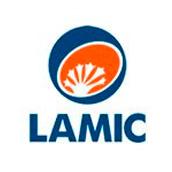Low-Volume Toolbox for the Discovery of Immunosuppressive Fungal Secondary Metabolites
Author details:
The secondary metabolome provides pathogenic fungi with a plethoric and versatile panel of molecules that can be deployed during host ingress. While powerful genetic and analytical chemistry methods have been developed to identify fungal secondary metabolites (SMs), discovering the biological activity of SMs remains an elusive yet critical task. Here, we describe a process for identifying the immunosuppressive properties of Aspergillus SMs developed by coupling a costeffective microfluidic neutrophil chemotaxis assay with an in vivo zebrafish assay. The microfluidic platform allows the identification of metabolites inhibiting neutrophil recruitment with as little as several nano-grams of compound in microliters of fluid. The zebrafish assay demonstrates a simple and accessible approach for performing in vivo studies without requiring any manipulation of the fish. Using this methodology we identify the immunosuppressive properties of a fungal SM, endocrocin. We find that endocrocin is localized in Aspergillus fumigatus spores and its biosynthesis is temperature-dependent. Finally, using the Drosophila toll deficient model, we find that deletion of encA, encoding the polyketide synthase required for endocrocin production, yields a less pathogenic strain of A. fumigatus when spores are harvested from endocrocin permissive but not when harvested from endocrocin restrictive conditions. The tools developed here will open new ‘‘function-omic’’ avenues downstream of the metabolomics, identification, and purification phases.
Abstract published in PLoS Pathogens 9(4): e1003289. doi:10.1371/journal.ppat.1003289.






.jpg&w=3840&q=75)